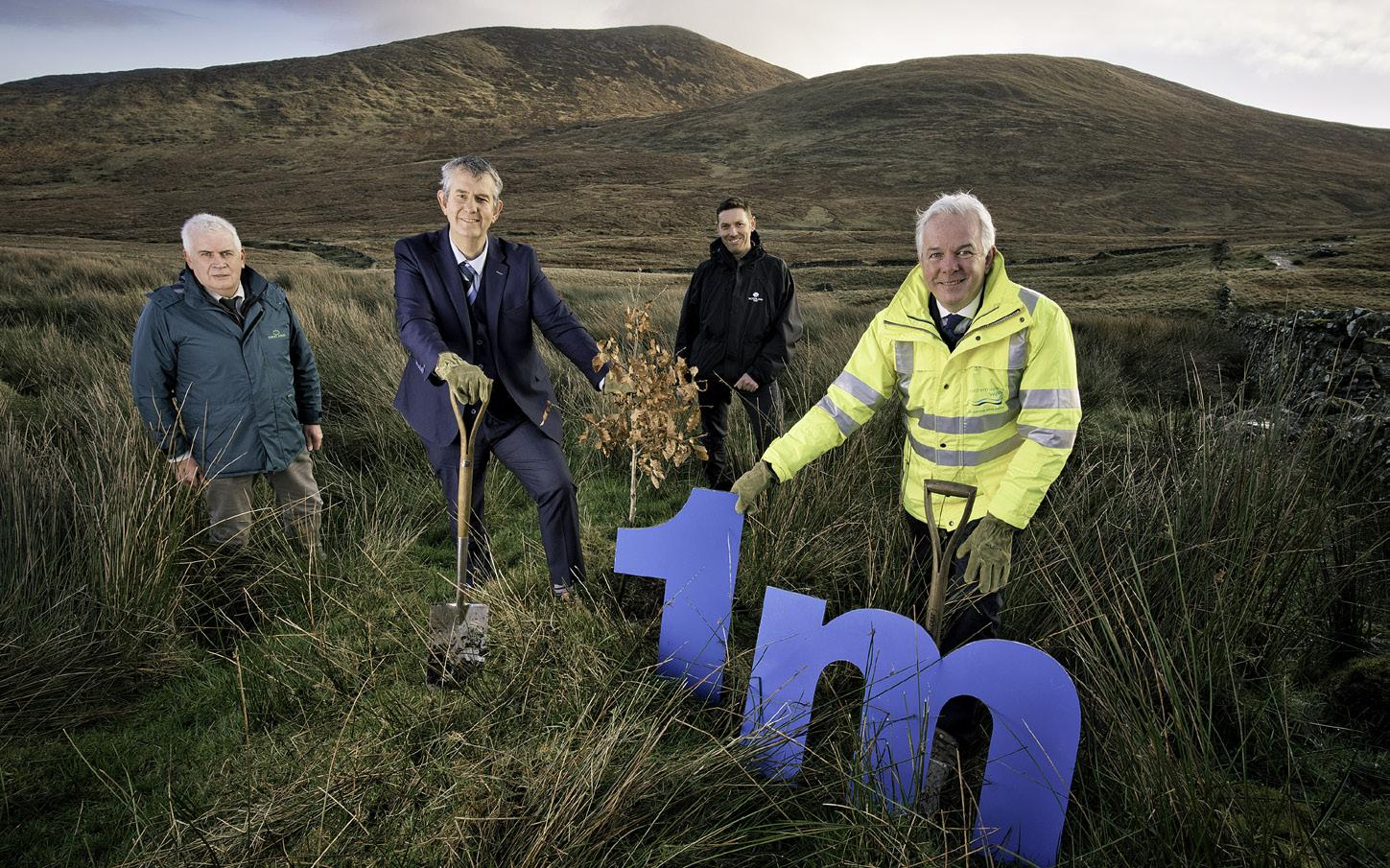
4 minute read
Building A Greener Future
EyeonInfrastructure
Nothing Will Drive Green Growth Better Than Low-Cost Green Energy
Advertisement
“Cherish the natural world because you’re a part of it
and you depend on it” Sir David Attenborough
Sara Venning, CEO NI Water
As we emerge from the health pandemic and address recovery we have a once in a life time opportunity to reset our economy for Green Growth. In this endeavour NI Water’s extensive and largely unseen assets have significant potential to help Northern Ireland become self-sufficient in low-cost green energy.
It is worth pausing to reflect on the phrase “self-sufficient in low-cost green energy” and how critical this is to a successful Green Growth economic strategy.
Northern Ireland is extremely well placed to achieve a Net Zero carbon energy transition across all sectors. It has an abundance of wind energy resource, is geographically compact, and has a single Utility Regulator for energy and water. This presents a huge opportunity.
One of the ways NI Water is already contributing to reducing carbon is planting trees.
NI Water CEO Sara Venning says “Trees being planted near our rivers and streams helps reduce the effect of climate change by capturing carbon and slowing river flow. Using NI Water land to plant trees, offsets the carbon emissions from NI Water’s electricity consumption. Tree roots also act as a natural water filter.
“As the second biggest landowner in Northern Ireland after the Forest Service, NI Water’s ambition is to plant 1 million trees over the next 10 years to improve water quality, capture carbon, mitigate floods and enhance the natural environment. This NI Water initiative, supports the NI Executive’s Green Growth strategy by improving the landscape and environment and moving towards a net zero carbon economy.”
As we decarbonise, most of our future energy requirement will be for green electricity. In the next ten years we will need to double our renewable generating capacity, just as our nearest neighbours plan to do. Most of this renewable capacity will be from cost competitive wind generation.
This shift to high percentages of renewable generation will bring challenges that NI Water can play a pivotal role in addressing by acting as a pathfinder in establishing practical decarbonised infrastructure solutions.
NI Water’s Director of Business Services, Alistair Jinks says, “Our existing electricity system infrastructure is not currently capable of accommodating the level of renewable generation we’ll require in the future. As the cost-competitiveness of Electric Vehicles (EVs) versus internal combustion engine vehicles approaches, NIE Networks have confirmed that they will need much greater flexibility in their network solutions to reduce the need for traditional reinforcement and higher costs for customers.”
NI Water already has generators connected to the electricity system services to help manage intermittency, provide resilience and system flexibility but there is significant scope to harness further resources.
NI Water’s large number of electricity consuming assets hold remarkable potential. For example the major pumps in our

EyeonInfrastructure

Ballykelly Wastewater Treatment Works Upgrade under Construction
water and waste water systems are well placed to play a part. In the near future batteries will be required to provide the quality of electricity service on which modern economies rely. There is a strong case for these to be deployed to key sites that provide water services whilst also enabling electricity network flexibility.
NI Water’s fleet of 650 vehicles could also be significant. As it converts to run on electricity the batteries and their interaction with the grid could provide further flexibility. Deploying electrolysis to produce oxygen and hydrogen at an NI Water site could increase waste water processing capacity, lower operating costs and prove critical in providing a way to address lulls in renewable generation and we need an alternative energy source to bridge the gap.
Modest reductions to water consumption could also help deliver significant reductions in greenhouse gas emissions. Research by Waterwise has revealed that around 6 percent of the UK’s total greenhouse gas emissions are from household water supply and use. Approximately 90 percent of these emissions relate to household water use; the rest are emissions from water companies supplying water and treating wastewater.
NI Water CEO Sara Venning says, “If everyone in Northern Ireland used a little bit less water we could make a difference. There are simple things that we can all do that can make a huge difference to being water efficient such as taking shorter showers or collecting water to reuse in a waterbutt. Although our planet is covered in water, only 1% of it is actually drinkable so it is important we conserve water now for our future generations.”
Clearly it will not be for NI Water alone to enable Northern Ireland to become self-sufficient in lowcost green energy and carbon reduction, and there will be some that say NI Water should just limit itself to its traditional role but we believe that by working closely with our stakeholders, Government and the Regulator, NI Water’s extensive and largely unseen assets can play a pivotal role in our society’s journey to Net Zero and sustainable prosperity.
Alistair Jinks, Director of Business Services and Damien O’Mullan Head of Energy at NI Water with a small-scale electrolyser on site at Kinnegar Wastewater Treatment Works (WwTW). This small-scale electrolyser is part of a pilot trial which will be used to inform the innovative Oxygen and Hydrogen Demonstrator Project that will deploy a state-of-the-art, 1 Megawatt (MW) electrolyser at a major WwTW. This ground-breaking initiative awarded £5m of funding from the Department for the Economy (DfE), is the first in the UK and Ireland to demonstrate how electrolysis can help to increase processing capacity, reduce carbon emissions and improve flexibility in the electricity grid.







